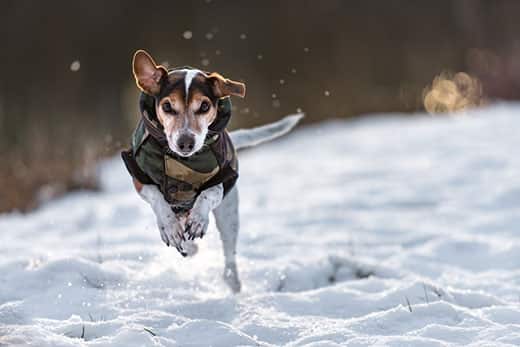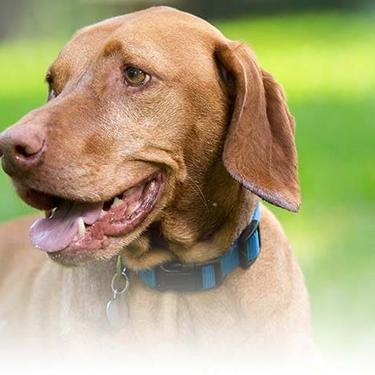
-
Find the right food for your pet
Take this quiz to see which food may be the best for your furry friend.
Find the right food for your pet
Take this quiz to see which food may be the best for your furry friend.
Featured products
 Small & Mini Savory Stew with Chicken & Vegetables Dog Food
Small & Mini Savory Stew with Chicken & Vegetables Dog FoodA delicious complement to the nutrition of Science Diet Small & Mini 7+ dog food
Shop Now Adult 7+ Perfect Digestion Chicken, Whole Oats & Brown Rice Recipe Dog Food
Adult 7+ Perfect Digestion Chicken, Whole Oats & Brown Rice Recipe Dog FoodScience Diet's breakthrough nutrition supports ultimate digestive well-being & healthy microbiome for dogs age 7+
Shop Now Adult Healthy Cuisine Roasted Chicken, Carrots & Spinach Stew Dog Food
Adult Healthy Cuisine Roasted Chicken, Carrots & Spinach Stew Dog FoodDelicious roasted chicken paired with tender vegetables in a succulent stew
Shop NowFeatured products
 Adult 7+ Senior Vitality Chicken & Vegetable Stew Cat Food
Adult 7+ Senior Vitality Chicken & Vegetable Stew Cat FoodImproves Everyday Ability to Get Up & Go
Shop Now Adult 7+ Tender Tuna Dinner Cat Food
Adult 7+ Tender Tuna Dinner Cat FoodWith delicious chunks in a decadent gravy
Shop Now Adult Savory Entrée Can Variety Pack Cat Food
Adult Savory Entrée Can Variety Pack Cat FoodPrecisely balanced nutrition with the delicious taste of savory minced chicken to help fuel the energy needs of cats during the prime of their life
Shop Now -
Dog
- Dog Tips & Articles
-
Health Category
- Weight
- Food & Environmental Sensitivities
- Urinary
- Digestive
- Joint
- Kidney
-
Life Stage
- Puppy Nutrition
- Adult Nutrition
- Senior Nutrition
Cat
- Cat Tips & Articles
-
Health Category
- Weight
- Skin & Food Sensitivities
- Urinary
- Digestive
- Kidney
-
Life Stage
- Kitten Nutrition
- Adult Nutrition
Featured articles
 Does My Pet Hate Me?
Does My Pet Hate Me?Learn tips for bonding with your pet if you've ever thought, 'My dog doesn't like me, or 'Why do I have a standoffish cat?'
Read More Why Are Dogs and Cats So Cute?
Why Are Dogs and Cats So Cute?If waggy puppy dog tails and furry kitten yawns make you swoon, you're not alone. Why are cats so cute? And, dogs too! Let's find out!
Read More Do Dogs and Cats have Belly Buttons?
Do Dogs and Cats have Belly Buttons?Learn whether cats & dogs have belly buttons like humans, what the function is, and if there are any health concerns associated with it.
Read More -


When the temperature plummets, you pile on your winter gear. But you might be wondering if your pooch needs extra layers, too. Are dog coats necessary in the winter, or is their fur enough to insulate them from the cold? Let's find out.
Do Dogs Need Winter Coats?
They just might. Even dogs with thick coats can get hypothermia or frostbite in freezing weather, according to the American Kennel Club (AKC). If the temperature is in the mid-40s Fahrenheit / 4.4 degrees Celsius or lower, it's definitely time to dress that pet. Melissa Pezzuto, a behavior team lead consultant for Best Friends Animal Society, told New York Magazine that "If your dog is shivering, lifting paws up to avoid the cold, or burrowing under a blanket, they may be a candidate for some winter weather clothing."
That said, there are many variables that factor into whether dogs need additional layers, including the specific climate outside and your dog's breed, age and health.

How to Decide If Your Dog Needs a Jacket
Large dogs with thick and dense coats, such as Siberian huskies and Alaskan malamutes, don't need protection from the cold, the AKC reports. The AKC says that other dogs, however, might need extra warmth: Chihuahuas and French bulldogs don't generate and retain enough heat to spend a lot of time in the cold. And dogs like Pembroke Welsh corgis, who are low to the ground, are also more affected by low temperatures. Dogs with lean bodies, like greyhounds, and dogs who have their hair clipped, like poodles, may also benefit from additional layers. Your mixed-breed dog might need a winter coat if they have a thinner coat or if they're low to the ground.
Since heat regulation diminishes with age, elderly pets, regardless of breed, might benefit from extra layers. While a light jacket is fine for dogs with thicker coats, a winter jacket is best for small dogs or dogs with thinner coats.


Tasty Tips
Choosing Your Dog's Winter Outerwear
If you've decided that your pooch could benefit from additional clothing in the winter months, it's time to choose how you'll dress them. Depending on the weather and the thickness of your pet's coat, a dog sweater might be all they need to stay warm. However, if the weather forecast includes freezing temperatures, snow, hail or cold rain, a winter jacket might be necessary. Make sure to purchase outerwear that is properly suited to your dog's size. It should fit snug around them to trap in their body heat, but not tight to where it cuts off circulation or mobility.
When walking your dog in the winter, don't forget about your dog's paws. While a jacket can help warm their body, their paws need protection, too — otherwise, they can get wet and cold. Your dog might also step on salt that's put on the roads to melt ice; this could be harmful if they lick their paws clean after a winter walk.
If you purchase booties for your dog, make sure to choose ones that have good traction so your pup won't slip on wet sidewalks or grass. Remember to check how the boots fit, too. Most dog booties come with Velcro or a strap to tighten the boots around the paws.
If you're unsure whether your dog needs winter gear, contact your veterinarian and ask if your dog could benefit from some additional winter protection. In the meantime, if you're not sure whether it's too cold for your pooch, stay inside and do some fun indoor exercise together instead.


Erin Ollila believes in the power of words and how a message can inform—and even transform—its intended audience. Her writing can be found all over the internet and in print, and includes interviews, ghostwriting, blog posts, and creative nonfiction. Erin is a geek for SEO and all things social media. She graduated from Fairfield University with an M.F.A. in Creative Writing. Reach out to her on Twitter @ReinventingErin or learn more about her at http://erinollila.com.
Related products

A delicious complement to the nutrition of Science Diet Small & Mini 7+ dog food

Delicious roasted chicken paired with tender vegetables in a succulent stew

Delicious braised beef paired with tender vegetables in a succulent stew

Science Diet's breakthrough nutrition supports ultimate digestive well-being & healthy microbiome for dogs age 7+
Related articles

Hill's Science Diet Small & Toy Breed dog foods are designed to meet the nutritional needs for your small dog at every life stage. Learn more here.

Large and giant breed puppies have different nutritional needs than other dogs. Learn how to provide the special care they need to grow up big and strong.

Learn about choosing the right food for your mature or older dog, ensuring he receives the correct balance of nutrition.

Your dog's coat and skin are a big part of your dog's overall health. Ensure you keep your dog's coat healthy, by following these simple tips.

Put your dog on a diet without them knowing
Our low calorie formula helps you control your dog's weight. It's packed with high-quality protein for building lean muscles, and made with purposeful ingredients for a flavorful, nutritious meal. Clinically proven antioxidants, Vitamin C+E, help promote a healthy immune system.
Put your dog on a diet without them knowing
Our low calorie formula helps you control your dog's weight. It's packed with high-quality protein for building lean muscles, and made with purposeful ingredients for a flavorful, nutritious meal. Clinically proven antioxidants, Vitamin C+E, help promote a healthy immune system.

